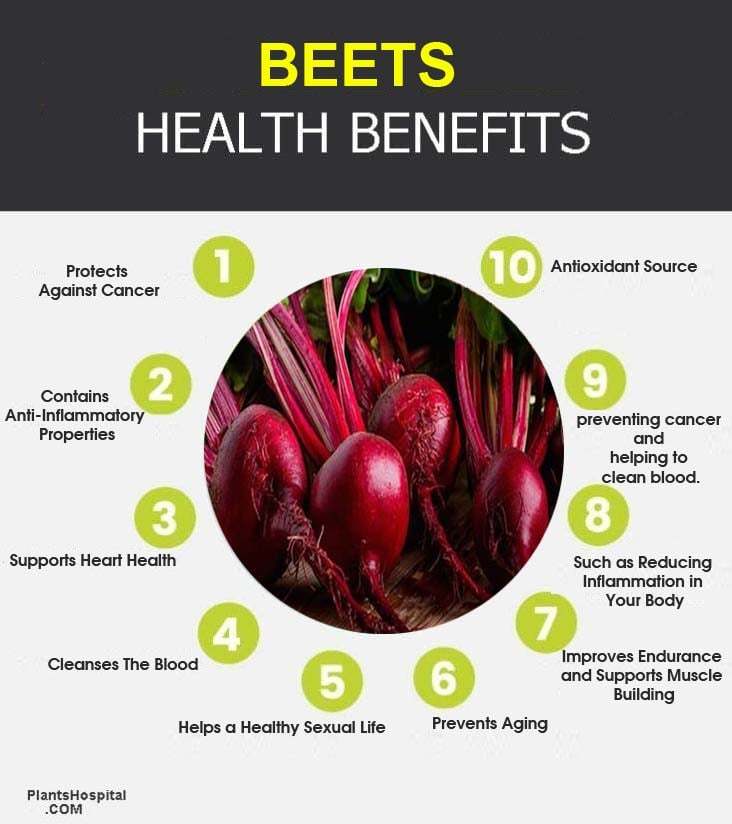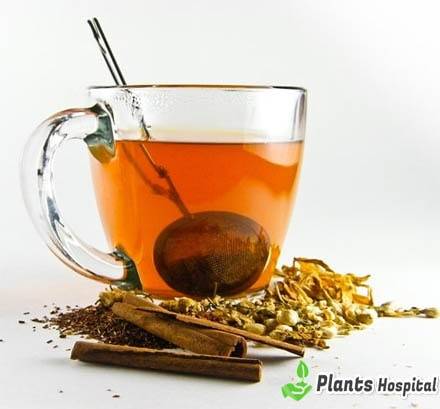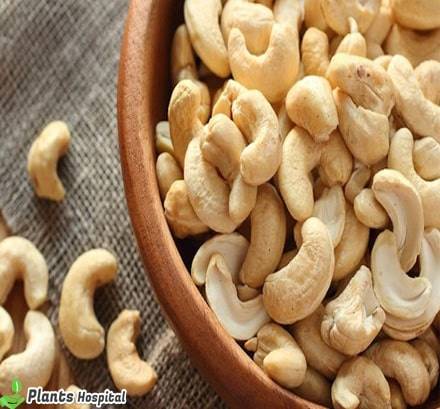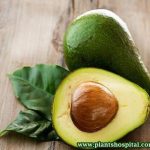Beets are rich in important vitamins and minerals and makes an excellent addition to your diet. Beets provide benefit in many ways, such as reducing inflammation in your body, supporting your heart and protecting your digestion, brain and eye health. Beet is a versatile root used in salads and juices, which can be eaten raw or cooked and used in various recipes from breakfast to dinner.
The benefits of beets are impressive and surprising when you consider its common positive features, such as helping exercise performance, preventing cancer and helping to clean blood.
Table of Contents
Nutritional Values Of Beets
A cup of beets approximately;
- 60 calories
- 4 grams of fiber
- 2.5 grams of protein
- Folate up to 34% of your daily need
- Manganese up to 28% of your daily need
- About 15% potassium per day
- Copper up to 14% of daily needs
- Magnesium up to 10% of daily needs
- It also contains iron, vitamins C and B vitamins.

7 Amazing Health Benefits Of Beets
1. Protects Against Cancer
Beets are naturally high in phytonutrients, antioxidants, vitamins and small amounts of minerals that fight disease.
Beet is an excellent source of phytoalexin called betalain (categorized as betaine and violaxanthin), which acts as cancer-protective useful antioxidants and anti-inflammatory molecules.
Studies show that the betalain component helps protect the body from cancers such as lung, stomach, large intestine and breast cancer against heart disease and many other diseases.
Light or dark red, purple, scarlet or orange beet; strawberries of the same colors and other red-colored fruits and vegetables. This is an excellent indicator of high antioxidant content.
Because of antioxidants, beets are very useful in protecting eye health. Beet is a source of lutein and zeaxanthin, two carotenoids that play a role in the protection of the eyes from conditions such as macular degeneration and cataracts. Other similar colored vegetables, such as carrots and zucchini, also contain these components.
The greatest supply of antioxidants fighting against this free radical damage is found in the greens of beets. Beet greens contain more lutein and zeaxanthin than purple beetroots, but even the roots provide a good source.
2. Contains Anti-Inflammatory Properties
Antiinflammatory compounds found in beets have been shown to inhibit the activity of cyclo-oxygenase enzymes that the body uses to trigger inflammation.
It is important and important that some inflammation is not transmitted to the body, because staying away from foreign bacterial or viral invaders is essential for not being sick all the time.
Reduced levels of inflammation help nearly every system in the body and combat neurodegenerative diseases such as heart disease, diabetes and Alzheimer’s and Parkinson’s diseases.
The average person; processed foods are fed with foods containing high amounts of sugar and small amounts of nutrients. This may increase inflammation. However, consuming food such as beets is an excellent way to prevent the immune system from triggering persistent high levels of inflammation.
Beet can fight inflammation due to betaine compounds. Betaine is derived from nutrient content derived from B vitamins in the body.
3. Supports Heart Health
Betaine and choline components have been shown to strongly regulate inflammation in the cardiovascular system, help bring cholesterol levels to a healthy balance and help reduce high blood pressure.
Choline can do this because of can reduce the effect of homocysteines, which are inflammatory reactions in the body that increase the risk of cardiovascular problems such as atherosclerosis or arterial obstruction.
Beets also contain nitrate compounds that show a positive benefit in cholesterol levels. Researchers now say is necessary to regularly consume nitrate-rich vegetables such as beets to maintain heart health in a variety of ways.

4. Beets Cleanses The Blood
Beets are known to be a natural blood cleanser. They can help you to remove and clean defects of toxins, heavy metals and waste caused by their compounds called glutathione, which are necessary for detoxification in the liver and other digestive organs.
Also, the fiber in the beet helps to dispel waste and toxins from the digestive system while regulating healthy and regular bowel movements.
Betalain in beets helps create glutathione, which neutralizes toxins and makes water-soluble, meaning can be excreted in urine and excreted outside the body.
Studies have shown that when beet extract is given to animals, their blood is purer and toxins-free compared to beet-untreated animals.
5. Helps a Healthy Sexual Life
Many cultures have long been supporting beet consumption as a natural aphrodisiac. Beets are thought to help increase and maintain a healthy sexual drive by increasing blood flow to the reproductive organs.
Beets can do this because of the high levels of two nitrates and boron that work in the body to regulate the production of human sex hormones.
It is responsible for maintaining your sexual health, especially as you age, by reducing inflammation, increasing blood circulation and providing more daily energy.
Editor’s Pick:
6. Prevents Aging
Beet consumption works to remove contamination from the digestive system and blood due to the diet and lifestyle leading to high inflammation.
Detoxification in this way is an effective way to help slow aging naturally with the high antioxidant values found in beets.
Beets are an excellent nutrient for balancing pH levels and alkalizing the body. the pH scale is used to determine acidity versus alkalinity; 7.1-14 is alkaline, 7 is neutral.
Most diseases live in an acidic environment, so your body’s goal is to remain mildly alkaline. Many foods, help to achieve this such as fruits and vegetables.
Limiting the consumption of low-quality, processed acid-forming foods and consuming more alkaline-forming foods, such as beets and other root vegetables, can protect your body from more common illnesses as people age.
This is due to their ability to reduce inflammation. Beet is also an excellent source of fiber, which helps the digestive system to function properly and supports weight loss.
7. Improves Endurance and Supports Muscle Building
Beets naturally contain nitrates; although you have heard of them in the past when consuming them as part of products such as delicatessen meats, bacon or other low-quality packaged meats, the types of nitrate in all foods such as beets are very useful for improving energy and performance.
Beets work to provide types of nitrates used for ease of recovery and increased physical performance in the body.
Some studies have shown that reinforcing nitrates found in beets allows athletes to gain a few more minutes during race hours and experience less bodily stress during exercise.








